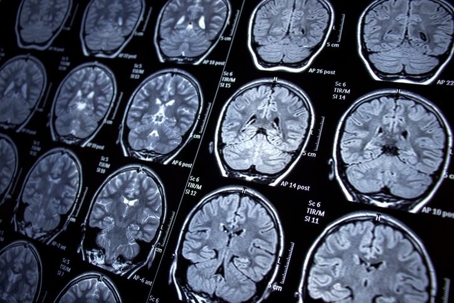March is Brain Injury Awareness Month and the ideal time to refresh best practices for preventing and treating traumatic brain injuries (TBI). A look at the data will reveal some critical details, and we can also review developments that impact those who suffer from TBI in Chattanooga, TN, Cartersville and Woodstock, GA and nationwide.
Defining a Traumatic Brain Injury
TBI is caused by impact from an external force to the head causing the brain to suffer genuine trauma. The Brain Injury Association of America (BIA) notes that TBI is an injury that is not hereditary, congenital, degenerative, or induced by birth trauma.
Traumatic impact injuries can be defined as closed (or non-penetrating) or open (penetrating). TBI victims may experience decreased cognitive function, changes in behavior or personality, loss of motor skills, language difficulties or memory loss. It is one of the leading causes of disability and death in the U.S.
According to the U.S. Centers for Disease Control and Prevention (CDC), 2.9 million adults and children sustain TBIs annually and at least 5.3 million people live with a TBI-related disability. The annual cost to society for associated medical care and lost wages is $76.5 billion. Additionally, TBI meets the threshold for various medical and legal definitions of a catastrophic injury, a practice area in which Pritchard Injury Firm has deep experience.
Common Types of TBI
The National Institutes of Health (NIH) note the most common TBI types:
- Concussion. This is usually a mild TBI without any gross structural damage and occurs secondary to a nonpenetrating TBI. It is often caused by acceleration/deceleration forces occurring secondary to a direct blow to the head and causes a transient altered mental status, which can range from confusion to loss of consciousness.
- Extra-axial Hematoma. This includes both epidural hematomas (EDH) and subdural hematomas (SDH). EDH usually results from bleeding from the middle meningeal artery and its branches or a fracture and is usually acute. SDH can result from the bleeding of a bridging vein and can be acute or chronic.
- Contusion. Also known as a bruising of the brain, contusions can be a coup or contrecoup type. Coup contusions occur at the site of impact, whereas contrecoup injuries typically take place on the contralateral side of impact, usually the basifrontal lobe and anterior temporal lobe.
- Traumatic Subarachnoid Hemorrhage. This hemorrhage results from the tearing of small capillaries with blood subsequently entering into the subarachnoid space.
- Diffuse Axonal Injury. This can underlie mild to moderate TBI and potentially results from any shearing, stretching, or twisting injuries to the neuronal axons. It can lead to axonal swelling, increased permeability, calcium influx, detachment, and axonal death.
TBI Causes
Understanding who is at the highest risk for these injuries, their causes, and where they occur most will help prevent TBI from happening to you and those nearby in Chattanooga, TN, Cartersville, and Woodstock, GA.
BIA lists the top five causes of TBI:
- Falls: 47.9%
- Being struck by, or against: 17.1%
- Motor vehicle collision or accident: 13.2%
- Unknown or uncategorized: 13.2%
- Assaults: 8.3%
Even a seemingly mundane impact can be fatal. For example, on Jan. 9, 2022, “Full House” actor Bob Saget died due to what was likely an accidental fall in a hotel room; he hit the back of his head, as per a statement from his family. Though he reported feeling a bit off, he assumed he could rest and take to the stage afterward.
But his autopsy revealed that what was believed to be an insignificant bump caused a fatal subarachnoid hemorrhage.
The characteristic shared by all the above types of brain injuries, ultimately, is that they can occur anytime and anywhere. TBI should be treated immediately to avoid fatal consequences.
Additional, Long-Term Effects of TBI
A new study published in the Journal of Head Trauma Rehabilitation found that chronic pain affects approximately 60% of TBI survivors.
Concussions are common in high-impact sports, particularly in football, hockey, boxing and wrestling. A player who suffers too many concussions in too short a time span may be forced to take a hiatus or retire to avoid permanent damage.
Furthermore, brain and mental injuries can be subtler than physical ones and may require psychological intervention to address symptoms such as depression and neurological challenges. Read more about the links between TBI and mental health and remember to observe Mental Health Awareness Month in May.
With the arrival of spring, employees and families will spend more time outdoors, increasing the risk of injury in prestigious cities like Chattanooga, TN, Cartersville and Woodstock, GA. These are just some of the reasons to heed the warning signs of road work, construction sites and those posted in government and commercial buildings.
TBI and Federal Action
Pritchard Injury Firm commends the BIA for its tireless advocacy to have Congress reauthorize the Traumatic Brain Injury Act. The Act is legislation that specifically addresses TBI prevention, research, and service delivery through grants to states that were originally administered by federal agencies. Its reauthorization will ensure that pivotal research continues and specific evidence-based fall prevention interventions on a large scale could avert between up to $442 million in direct medical costs annually in the U.S.
Your Traumatic Brain Injury Lawyer in GA and TN
Many TBI cases were either preventable or caused by the negligence or actions of another person. The days and weeks after a TBI can be jarring. You and your loved one might not know what steps to take, and you might not even be considering a lawsuit. However, the sooner you reach out to an attorney, the better. A liable party should be held accountable.
The traumatic brain injury lawyers at our firm can meet with you for a free consultation. Please contact Pritchard Injury Firm today.

